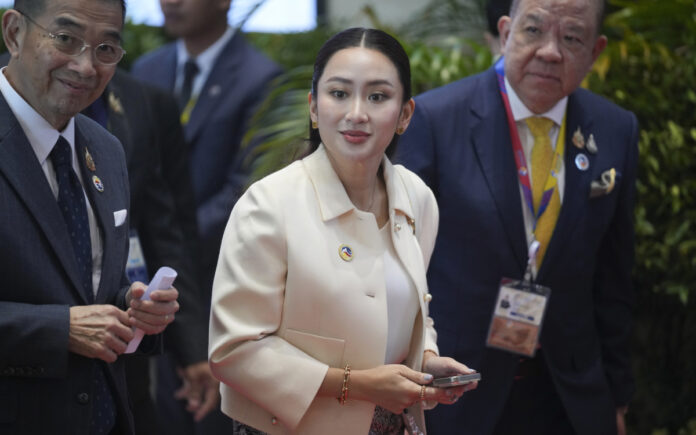Bangkok: Thai Prime Minister Paetongtarn Shinawatra successfully navigated a no-confidence vote in parliament on Wednesday, solidifying her leadership in the face of a vigorous two-day opposition offensive. The vote marked the first major test of her premiership and reaffirmed the stability of her 11-party coalition.
Paetongtarn, Thailand’s youngest prime minister, secured the backing of 319 out of 488 lawmakers present, despite intense scrutiny from the opposition. The censure debate saw her critics accuse her of being inexperienced, lacking economic expertise, evading taxes, and acting as a proxy for her influential father, former Prime Minister Thaksin Shinawatra.
The no-confidence motion was a significant challenge for Paetongtarn, who stepped into the political spotlight just seven months ago, replacing Srettha Thavisin after his court-ordered removal for an ethics violation. Throughout the debate, she firmly rejected all allegations against her.
Despite mixed approval ratings and Thailand’s economic performance trailing behind regional peers, Wednesday’s outcome demonstrated the resilience of Paetongtarn’s ruling coalition. The result dampened speculation of imminent political instability in a country that has experienced intermittent political turmoil for over two decades.
“Every vote, both in support and against, will strengthen me and the cabinet as we continue our work for the people,” the 38-year-old prime minister posted on X, expressing gratitude for her coalition’s backing.
การอภิปรายไม่ไว้วางใจครั้งนี้ ทุกอย่างผ่านไปได้ด้วยดีค่ะ ดิฉันขอขอบคุณทุกฝ่ายที่ทำหน้าที่ตัวแทนประชาชนอย่างเต็มที่ ทั้งคณะรัฐมนตรีซึ่งได้ร่วมชี้แจงทุกประเด็น สมาชิกสภาผู้แทนราษฎรทั้งฝ่ายรัฐบาลและฝ่ายค้าน ที่ร่วมกระบวนการตรวจสอบเพื่อประโยชน์ของประเทศ
— Ing Shin (@ingshin) March 26, 2025
ทุกคะแนนเสียง ทั้งสนับสนุน… pic.twitter.com/dbiGHG5rgd
Also Read | A Transgender Rohingya Woman’s Struggle for Dignity in Bangladesh’s Refugee Camps
Thaksin’s Enduring Influence
Governments led by the Pheu Thai Party and its predecessors—long associated with Thaksin Shinawatra—have frequently been ousted by military coups or court rulings since 2006. The former telecommunications tycoon remains a deeply polarizing figure in Thai politics, often clashing with the country’s powerful conservative establishment.
The opposition People’s Party, Thailand’s largest parliamentary faction, concentrated its criticism on Paetongtarn’s close ties with her father. Thaksin, who owned English football club Manchester City before selling it, spent 15 years in self-imposed exile to avoid legal charges. He returned to Thailand in 2023, serving six months in detention under a Pheu Thai-led government before being released on parole. Since then, he has openly discussed government policies, though he insists he merely provides his daughter with guidance.
Also Read | Tensions Soar in Beni as Police Fire on Crowds at Delcat Idengo’s Burial
During the parliamentary debate, Paetongtarn emphasized her commitment to governance, urging lawmakers to evaluate her on her performance rather than her family connections. However, opposition leader Natthaphong Ruengpanyawut maintained that her leadership remained inadequate.
“The prime minister’s abilities are still lacking,” he stated. “And if Thailand has a prime minister without the right qualities, the nation will be at a loss.”



